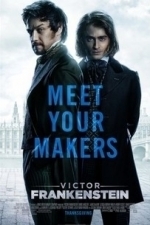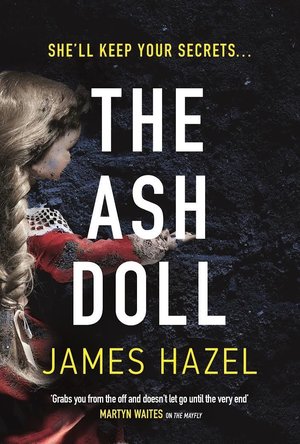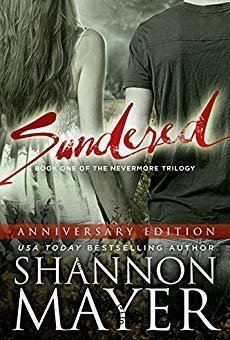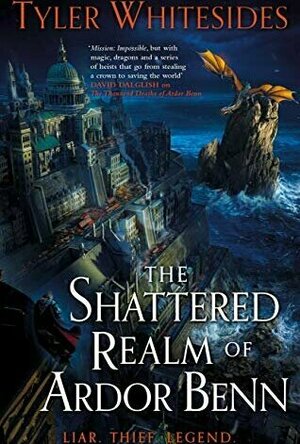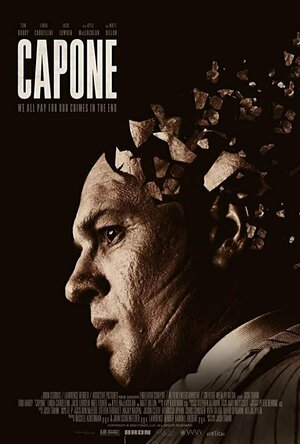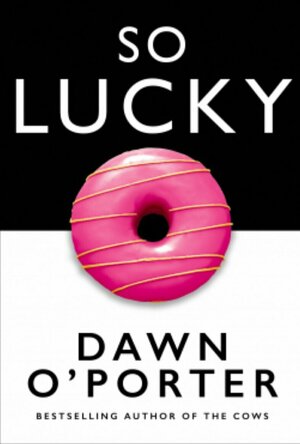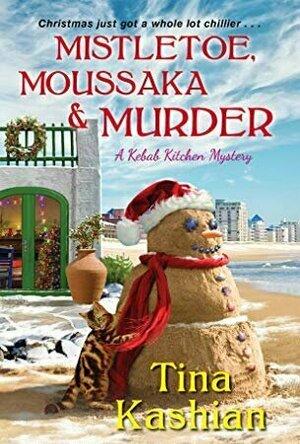Search
Search results
Awix (3310 KP) rated Victor Frankenstein (2015) in Movies
Feb 25, 2018 (Updated Feb 25, 2018)
I, Igor
If you're one of those people who thinks that the story of Frankenstein pays far too much attention to him actually making the monster, and not enough to the details and ups-and-downs of his relationship with Igor the hunchback, then this is the film for you (although if that's your attitude, you really don't deserve Frankenstein movies at all). Deformed circus clown becomes brilliant self-taught surgeon and anatomist, is rescued by unconventional medical student, gets put to work stitching.
James McAvoy could have been a great Frankenstein, but not with a script like this one - narration keeps banging on about how familiar we all are with this story, before going off into new and wildly eccentric territory - Igor has a romance with a trapeze artist, there are problems with steampunk zombie chimps, etc. Actual creation of famous monster only happens in last ten minutes. Film has zero feeling for historical setting (a version of Victorian London where nobody bats an eyelid if your name is Igor or Frankenstein).
All the major themes of Shelley's story are basically sidelined in favour of overwrought emotional drama. Best thing in it is possibly Andrew Scott as a detective looking to bust Dr F for interfering with zoo animals; his scenes with McAvoy are actually pretty interesting. The kind of film that seems to be afraid the audience will get bored and wander away if there isn't an outbreak of slow-mo or CGI or whatever every five minutes. How does Max Landis manage to keep selling scripts like this one? Moderately good-looking but a massive waste of potential.
James McAvoy could have been a great Frankenstein, but not with a script like this one - narration keeps banging on about how familiar we all are with this story, before going off into new and wildly eccentric territory - Igor has a romance with a trapeze artist, there are problems with steampunk zombie chimps, etc. Actual creation of famous monster only happens in last ten minutes. Film has zero feeling for historical setting (a version of Victorian London where nobody bats an eyelid if your name is Igor or Frankenstein).
All the major themes of Shelley's story are basically sidelined in favour of overwrought emotional drama. Best thing in it is possibly Andrew Scott as a detective looking to bust Dr F for interfering with zoo animals; his scenes with McAvoy are actually pretty interesting. The kind of film that seems to be afraid the audience will get bored and wander away if there isn't an outbreak of slow-mo or CGI or whatever every five minutes. How does Max Landis manage to keep selling scripts like this one? Moderately good-looking but a massive waste of potential.
ClareR (5879 KP) rated The Ash Doll in Books
Sep 24, 2018
A thrillingly dark read!
This is the second in the Charlie Priest series, but I have to say that it's so well written that it's not necessary to have read the first book in the series, 'The Mayfly' to enjoy this. Suffice to say, I got three chapters in to this book and immediately bought the first book. I can see Charlie Priest becoming my new book obsession!
We're thrown right in to the action on the first page with a small girl, who appears to be on the verge of throwing herself off a cliff in front of a group of hikers. No one knows who she is or where she has come from.
We then flash forward to the present day, and the court case that Charlie Priest and his colleagues are involved with - a libel case between a charity and a magazine. Believe me, I couldn't see how there could possibly be any kind of connection between the two.
The start of the book isn't particularly pleasant (trigger warnings here for anyone that doesn't like reading about child abuse!), but it really drew me in: who is the child? What has happened to her? Ho what she come to be imprisoned and abused? Yes, there's some pretty graphic content, both with regards to her treatment and the murders.
Charlie and his sidekick, Georgie Someday, are so likeable, and Charlie's medical condition adds an interesting layer to the story.
I would highly recommend this, especially if you like dark, well written thrillers.
Many thanks to Readers First, NetGalley and the publisher Bonnier Zaffre for sending me a copy to read.
We're thrown right in to the action on the first page with a small girl, who appears to be on the verge of throwing herself off a cliff in front of a group of hikers. No one knows who she is or where she has come from.
We then flash forward to the present day, and the court case that Charlie Priest and his colleagues are involved with - a libel case between a charity and a magazine. Believe me, I couldn't see how there could possibly be any kind of connection between the two.
The start of the book isn't particularly pleasant (trigger warnings here for anyone that doesn't like reading about child abuse!), but it really drew me in: who is the child? What has happened to her? Ho what she come to be imprisoned and abused? Yes, there's some pretty graphic content, both with regards to her treatment and the murders.
Charlie and his sidekick, Georgie Someday, are so likeable, and Charlie's medical condition adds an interesting layer to the story.
I would highly recommend this, especially if you like dark, well written thrillers.
Many thanks to Readers First, NetGalley and the publisher Bonnier Zaffre for sending me a copy to read.
Lyndsey Gollogly (2893 KP) rated Sundered (Nevermore book #1) in Books
Jul 19, 2019
Contains spoilers, click to show
Author Warning: This book has a cliffhanger. Proceed with caution as you may fall off the edge screaming for more.
My name is Mara and I want desperately to become a mother. All of my dreams were dashed when the world was promised hope but instead became a place of danger, death . . . and monsters.
Living in a rural part of Canada, I thought life with my adoring husband was finally moving in the right direction. We had an idyllic home, friends, and plans for a future together.
The only thing missing, was the child we both so desperately wanted.
Hope came in the form of a single medical miracle. Yet the drug was not as it seemed and instead of healing, it beget a world of monsters.
Now we must find the will and strength to survive with only each other to hold onto.
But a deadly secret threatens our love and very survival .
So I'm new to Shannon Meyer and I really enjoyed this book it's the first in a trilogy and it kept me interested from the fist word to the last!
It's a spin on the zombie apocalypse and yes one that is quite obvious. What I like about this book is the connection you see between the nevermore's.
The only thing I kinda was annoyed by was the author warning of a cliff hanger. It wasn't what I was expecting in a cliff hanger I mean it was quite obvious what she was going to have to do!
⭐⭐⭐⭐
My name is Mara and I want desperately to become a mother. All of my dreams were dashed when the world was promised hope but instead became a place of danger, death . . . and monsters.
Living in a rural part of Canada, I thought life with my adoring husband was finally moving in the right direction. We had an idyllic home, friends, and plans for a future together.
The only thing missing, was the child we both so desperately wanted.
Hope came in the form of a single medical miracle. Yet the drug was not as it seemed and instead of healing, it beget a world of monsters.
Now we must find the will and strength to survive with only each other to hold onto.
But a deadly secret threatens our love and very survival .
So I'm new to Shannon Meyer and I really enjoyed this book it's the first in a trilogy and it kept me interested from the fist word to the last!
It's a spin on the zombie apocalypse and yes one that is quite obvious. What I like about this book is the connection you see between the nevermore's.
The only thing I kinda was annoyed by was the author warning of a cliff hanger. It wasn't what I was expecting in a cliff hanger I mean it was quite obvious what she was going to have to do!
⭐⭐⭐⭐
Ross (3284 KP) rated The Shattered Realm of Ardor Benn in Books
Mar 12, 2021
Fantastic fantasy heist follow-up
I received an advance copy of this book from the publishers and NetGalley in exchange for an honest review
The second Ardor Benn book is another epic tale of the ruse artist taking on the royal family. The first book saw Ard's efforts depose the current king and save the dragon race (and hence the world). Sadly, the replacement royalty is no better and the Great Chain is now scattered into different, warring islands. Ard finds himself embroiled in a plot to unearth the conspiracy that the new king's dead nephew, and the rightful heir, is not actually dead.
There is also an interesting new subplot where we see a university professor tasked with discovering new Grit types (the world's magic system, whereby different materials once digested and fired by a dragon produce different magical results). This angle, like the industrial/medical revolution is surprisingly thrilling, with additional intrigue as the results become the interests of some unsavoury characters.
Ard and Raek are once again superb and quickly put together a plot to infiltrate a secret criminal underworld and discover the whereabouts of the true king. The secrecy and plotting, and use of the world's magic makes for some excellent exciting passages.
There are the usual twists and turns along the way, as the security measures in place in the secret society make it hard for Ard to progress too quickly.
As with the first book, the true nature of this strange world is unveiled a little more over the course of the book in spectacular fashion.
A wonderful fun read.
The second Ardor Benn book is another epic tale of the ruse artist taking on the royal family. The first book saw Ard's efforts depose the current king and save the dragon race (and hence the world). Sadly, the replacement royalty is no better and the Great Chain is now scattered into different, warring islands. Ard finds himself embroiled in a plot to unearth the conspiracy that the new king's dead nephew, and the rightful heir, is not actually dead.
There is also an interesting new subplot where we see a university professor tasked with discovering new Grit types (the world's magic system, whereby different materials once digested and fired by a dragon produce different magical results). This angle, like the industrial/medical revolution is surprisingly thrilling, with additional intrigue as the results become the interests of some unsavoury characters.
Ard and Raek are once again superb and quickly put together a plot to infiltrate a secret criminal underworld and discover the whereabouts of the true king. The secrecy and plotting, and use of the world's magic makes for some excellent exciting passages.
There are the usual twists and turns along the way, as the security measures in place in the secret society make it hard for Ard to progress too quickly.
As with the first book, the true nature of this strange world is unveiled a little more over the course of the book in spectacular fashion.
A wonderful fun read.
LoganCrews (2861 KP) rated Fonzo (Capone) (2020) in Movies
Jul 4, 2021
What's the scariest thing to reckon with: mortality, humanity, or yourself? Tom Hardy plays a constipated bulldog with a pinch of Beetlejuice in this utterly beguiling Frankenstein's monster of a film which can only be described as 𝘎𝘰𝘵𝘵𝘪 (2018) hopped up on a bunch of prescription medication. I think the major takeaway from this is that Trank makes a tedious gangster movie - but a pretty fuckin' sweet horror/fantasy curio. Right off the bat I admire it for being so scene-to-scene fascinating based solely on how wholeheartedly unique it is; I expected no less from Trank than an auteurist stamp as big, original, and defined as this. Yes this is wonderfully experimental, yes this is very uncomfortable - seasoned with bodily fluids, a good amount of violence, and the sort of medical anguish which starts out grim and only gets more merciless as it continues... however, it also doesn't amount to too much. Hardy's grotesque turn here is memorable but 80% of the time it's reduced to staring off into the distance making various faces. It also has a similar issue to Barry Levinson's 𝘛𝘩𝘦 𝘞𝘪𝘻𝘢𝘳𝘥 𝘰𝘧 𝘓𝘪𝘦𝘴 in that the show-stealing macabre nightmare segments are just *crying* to break out more than the seemingly stock, incompetently structured narrative. However this was still super cool just on principle alone, and as someone who is sick of rote biopics it's nice to see one of them not be afraid to try something unquestionably different for a change (especially by dragging such a historic, opulent figure through the mud the whole time). Plus one of these are finally under an hour-45, go figure!
I’ll be going back to read more of Dawn’s books after this!
So Lucky by Dawn O’Porter starts off with the main characters, Beth and Ruby, feeling anything BUT lucky. In fact, Ruby in particular starts off as a pretty insular, unapproachable character. She has shut other people out, including her daughter and ex-husband, because of a medical condition that affects her appearance (and only bothers her).
Beth has a husband who is struggling with Beth’s roles as a mother and a wife and consequently won’t have sex with her. The final main character, Lauren, is a model and seems to have it all. At least that’s what her Instagram posts tell us (and by the way, some of the comments on her Instagram posts are so funny. Not very nice, but very funny!).
These are all very relatable women, we may not have ‘been there’ but we can understand and relate to where they’re coming from. Beth’s employee, Risky (and what an appropriate name that is!) was such a good character - she seemed to be there to remind the reader that everything is normal, and we should support and empower one another as women. And she was hilarious. Because I both laughed out loud and I cried at this book. Parts were just heartbreaking, saved by a healthy dose of black humour.
This is the first Dawn O’Porter book I’ve read, and it’s thanks to The Pigeonhole that I got the opportunity to do so. She’s not an author that I’d immediately think of reading, but I’m so glad that I did. This is an excellent book, and I’d highly recommend it.
Beth has a husband who is struggling with Beth’s roles as a mother and a wife and consequently won’t have sex with her. The final main character, Lauren, is a model and seems to have it all. At least that’s what her Instagram posts tell us (and by the way, some of the comments on her Instagram posts are so funny. Not very nice, but very funny!).
These are all very relatable women, we may not have ‘been there’ but we can understand and relate to where they’re coming from. Beth’s employee, Risky (and what an appropriate name that is!) was such a good character - she seemed to be there to remind the reader that everything is normal, and we should support and empower one another as women. And she was hilarious. Because I both laughed out loud and I cried at this book. Parts were just heartbreaking, saved by a healthy dose of black humour.
This is the first Dawn O’Porter book I’ve read, and it’s thanks to The Pigeonhole that I got the opportunity to do so. She’s not an author that I’d immediately think of reading, but I’m so glad that I did. This is an excellent book, and I’d highly recommend it.
Mark @ Carstairs Considers (2346 KP) rated Mistletoe, Moussaka, and Murder in Books
Oct 21, 2021 (Updated Oct 21, 2021)
Polar Bear Plunge of Death
Every December, Ocean Crest, New Jersey, hosts a polar bear plunge as a fund raiser, and this year it is raising money for a much-needed renovation for the senior center. Most of the businesses in the town are participating, and Lucy Berberian is representing her family’s Kebab Kitchen restaurant. As expected, the water is chilly, but all that is soon forgotten when the dead body of one of the participants washes ashore. At first everyone assumes that the shock of the cold water killed Deacon Spooner, but the medical examiners determines that it was murder. Lucy had recently met Deacon, and he wasn’t a nice man. When the police look at Lucy’s friend as their prime suspect, she can’t help but nose around. She uncovers plenty of motives and opportunity, but who actually killed the man?
The book starts out strong, but it loses its way, with very little forward movement and a sub-plot taking over as we near the climax. Fortunately, we do get a logical and suspenseful ending. The sub-plot, about Lucy dragging her feet planning her wedding, would have made sense if it had been weeks between books instead of months. Still, it did allow us to see some growth in Lucy and in her relationships, which I appreciated. The book isn’t overwhelming with Christmas, but it is there, and I enjoyed that aspect as well. We get four recipes at the end of the book to enjoy later. While the book could have been stronger, as a fan of the series, I’m glad I read it.
The book starts out strong, but it loses its way, with very little forward movement and a sub-plot taking over as we near the climax. Fortunately, we do get a logical and suspenseful ending. The sub-plot, about Lucy dragging her feet planning her wedding, would have made sense if it had been weeks between books instead of months. Still, it did allow us to see some growth in Lucy and in her relationships, which I appreciated. The book isn’t overwhelming with Christmas, but it is there, and I enjoyed that aspect as well. We get four recipes at the end of the book to enjoy later. While the book could have been stronger, as a fan of the series, I’m glad I read it.
Heather Cranmer (2721 KP) created a post
Nov 14, 2022 (Updated Nov 14, 2022)
Hazel (1853 KP) rated Small Great Things in Books
May 24, 2017
Small is an Understatement
Jodi Picoult has been my favourite author since I first came across her novels in 2008. With twenty-three novels under her belt, she continues to delight readers with her page-turning stories. Most of Picoult’s books contain a moral issue, often, but not always, in the form of medical ethics, as well as a hefty court case. Although following along similar lines, Small Great Things is a radical, revolutionary book, which, with great courage, Picoult has written with the intent to expose the reader to truths that most of us, as a society, are intentionally oblivious to.
The gist of the storyline is that a baby dies whilst under the care of a nurse, prompting the grieving parents to take her to court with the accusation of murder. Although that sounds like an interesting story, it barely begins to describe what the book is about. The character on trial, Ruth, is an African American labour and delivery nurse – something that in this day and age need not by an issue. On the other hand, the parents of the baby are White Supremacists: seriously racist with the belief that white people are the master race. The father, Turk, refuses to let his wife and child be treated by Ruth, however circumstances result in her being the only nurse available to watch Davis, when, unfortunately, he so happens to go into cardiac arrest. Although the reader knows that Ruth is not at fault, Turk insists she murdered his child – but is he accusing her of medical negligence, or punishing her for being black?
Three characters, all with different views and experience when it comes to racism, alternately narrate Small Great Things. Ruth and Turk represent the extremes at either side of the scale. Ruth experiences first hand the negative impact of prejudice in the American system and society, not only through this court case, but in everyday life as well. She also reveals the difficulties growing up in a predominately white environment, never feeling like she fitted in with her peers. Alternatively, Turk spent his teenage years attending KKK rallies, participating in a white power movement, and beating up anyone who was different: black, foreign, gay, Jewish and so forth.
The third character represents the majority of white people living in America. Kennedy is a public defender and the lawyer assigned to Ruth’s case. Like most of the population, she believes that she is not racist, and persuades Ruth to leave the colour of her skin out of the argument. However, as she gets to know her client, she begins to realize that it is nigh on impossible to ignore racial prejudice.
Picoult shocks the reader on two accounts: one, the way that people of colour have been, and still are, treated; and two, the revelation that an invisible empire of White Supremacists are living amongst us. Yet there is a third way in which Picoult provokes outrage – she indirectly accuses the reader of being racist, too.
There is always something to learn in a Jodi Picoult novel, for instance medical terminology, or the way in which a court trial is conducted. Small Great Things provides a lot more eye opening information than any of her previous books, unveiling facts about such a controversial subject.
Through Kennedy, the reader’s eyes are opened to the racial discrimination that we all turn a blind eye to. Ignored are the difficulties African Americans suffer when going shopping, applying for jobs, attending school, walking down the street, sitting on a bus, and so forth. Picoult asks me as a reader to think about how my life has been affected by racial discrimination: being served politely in shops because I am white, not having my ethnicity questioned when applying for college etc. Living in Britain I have not experienced openly hateful comments or behaviours towards people with a different skin tone – I used to believe this was primarily an American problem. Yet, Small Great Things has really made me think about the hierarchy of power within society, particularly in regards to the ethnicity of those at the top, compared with those at the bottom.
Jodi Picoult sat on the idea of writing a book about racism for well over a decade, yet it is particularly apt that it is published now, with the current predicaments America is facing. Although we have come a long way in attempts to achieve equality for all – compare the trial in To Kill A Mockingbird to Picoult’s version – recent events have revealed that we are no where near.
Small Great Things will shock everyone who reads it regardless of their ethnicity and so forth. Many may find it uncomfortable to read, become upset or outraged, and even feel like they are being directly targeted. If this is the case, then good – it should do that. Everyone needs to read this book. On the one hand it is a brilliant, well told story with a beautiful, almost poetic narrative, and on the other, it causes us to face up to the issues we are forever making light of or overlooking entirely. We have grown up believing that racism is a form of hatred when, actually, it is about power. However Small Great Things makes you feel, it is definitely worth reading, especially for the satisfying ending – one that you do not see coming.
The gist of the storyline is that a baby dies whilst under the care of a nurse, prompting the grieving parents to take her to court with the accusation of murder. Although that sounds like an interesting story, it barely begins to describe what the book is about. The character on trial, Ruth, is an African American labour and delivery nurse – something that in this day and age need not by an issue. On the other hand, the parents of the baby are White Supremacists: seriously racist with the belief that white people are the master race. The father, Turk, refuses to let his wife and child be treated by Ruth, however circumstances result in her being the only nurse available to watch Davis, when, unfortunately, he so happens to go into cardiac arrest. Although the reader knows that Ruth is not at fault, Turk insists she murdered his child – but is he accusing her of medical negligence, or punishing her for being black?
Three characters, all with different views and experience when it comes to racism, alternately narrate Small Great Things. Ruth and Turk represent the extremes at either side of the scale. Ruth experiences first hand the negative impact of prejudice in the American system and society, not only through this court case, but in everyday life as well. She also reveals the difficulties growing up in a predominately white environment, never feeling like she fitted in with her peers. Alternatively, Turk spent his teenage years attending KKK rallies, participating in a white power movement, and beating up anyone who was different: black, foreign, gay, Jewish and so forth.
The third character represents the majority of white people living in America. Kennedy is a public defender and the lawyer assigned to Ruth’s case. Like most of the population, she believes that she is not racist, and persuades Ruth to leave the colour of her skin out of the argument. However, as she gets to know her client, she begins to realize that it is nigh on impossible to ignore racial prejudice.
Picoult shocks the reader on two accounts: one, the way that people of colour have been, and still are, treated; and two, the revelation that an invisible empire of White Supremacists are living amongst us. Yet there is a third way in which Picoult provokes outrage – she indirectly accuses the reader of being racist, too.
There is always something to learn in a Jodi Picoult novel, for instance medical terminology, or the way in which a court trial is conducted. Small Great Things provides a lot more eye opening information than any of her previous books, unveiling facts about such a controversial subject.
Through Kennedy, the reader’s eyes are opened to the racial discrimination that we all turn a blind eye to. Ignored are the difficulties African Americans suffer when going shopping, applying for jobs, attending school, walking down the street, sitting on a bus, and so forth. Picoult asks me as a reader to think about how my life has been affected by racial discrimination: being served politely in shops because I am white, not having my ethnicity questioned when applying for college etc. Living in Britain I have not experienced openly hateful comments or behaviours towards people with a different skin tone – I used to believe this was primarily an American problem. Yet, Small Great Things has really made me think about the hierarchy of power within society, particularly in regards to the ethnicity of those at the top, compared with those at the bottom.
Jodi Picoult sat on the idea of writing a book about racism for well over a decade, yet it is particularly apt that it is published now, with the current predicaments America is facing. Although we have come a long way in attempts to achieve equality for all – compare the trial in To Kill A Mockingbird to Picoult’s version – recent events have revealed that we are no where near.
Small Great Things will shock everyone who reads it regardless of their ethnicity and so forth. Many may find it uncomfortable to read, become upset or outraged, and even feel like they are being directly targeted. If this is the case, then good – it should do that. Everyone needs to read this book. On the one hand it is a brilliant, well told story with a beautiful, almost poetic narrative, and on the other, it causes us to face up to the issues we are forever making light of or overlooking entirely. We have grown up believing that racism is a form of hatred when, actually, it is about power. However Small Great Things makes you feel, it is definitely worth reading, especially for the satisfying ending – one that you do not see coming.
Hazel (1853 KP) rated Small Great Things in Books
Dec 7, 2018
Jodi Picoult has been my favourite author since I first came across her novels in 2008. With twenty-three novels under her belt, she continues to delight readers with her page-turning stories. Most of Picoult’s books contain a moral issue, often, but not always, in the form of medical ethics, as well as a hefty court case. Although following along similar lines, <i>Small Great Thing</i>s is a radical, revolutionary book, which, with great courage, Picoult has written with the intent to expose the reader to truths that most of us, as a society, are <s>intentionally</s> oblivious to.
The gist of the storyline is that a baby dies whilst under the care of a nurse, prompting the grieving parents to take her to court with the accusation of murder. Although that sounds like an interesting story, it barely begins to describe what the book is about. The character on trial, Ruth, is an African American labour and delivery nurse – something that in this day and age need not by an issue. On the other hand, the parents of the baby are White Supremacists: seriously racist with the belief that white people are the master race. The father, Turk, refuses to let his wife and child be treated by Ruth, however circumstances result in her being the only nurse available to watch Davis, when, unfortunately, he so happens to go into cardiac arrest. Although the reader knows that Ruth is not at fault, Turk insists she murdered his child – but is he accusing her of medical negligence, or punishing her for being black?
Three characters, all with different views and experience when it comes to racism, alternately narrate<i> Small Great Things</i>. Ruth and Turk represent the extremes at either side of the scale. Ruth experiences first hand the negative impact of prejudice in the American system and society, not only through this court case, but in everyday life as well. She also reveals the difficulties growing up in a predominately white environment, never feeling like she fitted in with her peers. Alternatively, Turk spent his teenage years attending KKK rallies, participating in a white power movement, and beating up anyone who was different: black, foreign, gay, Jewish and so forth.
The third character represents the majority of white people living in America. Kennedy is a public defender and the lawyer assigned to Ruth’s case. Like most of the population, she believes that she is not racist, and persuades Ruth to leave the colour of her skin out of the argument. However, as she gets to know her client, she begins to realize that it is nigh on impossible to ignore racial prejudice.
Picoult shocks the reader on two accounts: one, the way that people of colour have been, and still are, treated; and two, the revelation that an invisible empire of White Supremacists are living amongst us. Yet there is a third way in which Picoult provokes outrage – she indirectly accuses the reader of being racist, too.
There is always something to learn in a Jodi Picoult novel, for instance medical terminology, or the way in which a court trial is conducted. <i>Small Great Things</i> provides a lot more eye opening information than any of her previous books, unveiling facts about such a controversial subject.
Through Kennedy, the reader’s eyes are opened to the racial discrimination that we all turn a blind eye to. Ignored are the difficulties African Americans suffer when going shopping, applying for jobs, attending school, walking down the street, sitting on a bus, and so forth. Picoult asks me as a reader to think about how my life has been affected by racial discrimination: being served politely in shops because I am white, not having my ethnicity questioned when applying for college etc. Living in Britain I have not experienced openly hateful comments or behaviours towards people with a different skin tone – I used to believe this was primarily an American problem. Yet, <i>Small Great Things</i> has really made me think about the hierarchy of power within society, particularly in regards to the ethnicity of those at the top, compared with those at the bottom.
Jodi Picoult sat on the idea of writing a book about racism for well over a decade, yet it is particularly apt that it is published now, with the current predicaments America is facing. Although we have come a long way in attempts to achieve equality for all – compare the trial in <i>To Kill A Mockingbird</i> to Picoult’s version – recent events have revealed that we are no where near.
<i>Small Great Things</i> will shock everyone who reads it regardless of their ethnicity and so forth. Many may find it uncomfortable to read, become upset or outraged, and even feel like they are being directly targeted. If this is the case, then good – it should do that. Everyone needs to read this book. On the one hand it is a brilliant, well told story with a beautiful, almost poetic narrative, and on the other, it causes us to face up to the issues we are forever making light of or overlooking entirely. We have grown up believing that racism is a form of hatred when, actually, it is about power. However <i>Small Great Things </i>makes you feel, it is definitely worth reading, especially for the satisfying ending – one that you do not see coming.
The gist of the storyline is that a baby dies whilst under the care of a nurse, prompting the grieving parents to take her to court with the accusation of murder. Although that sounds like an interesting story, it barely begins to describe what the book is about. The character on trial, Ruth, is an African American labour and delivery nurse – something that in this day and age need not by an issue. On the other hand, the parents of the baby are White Supremacists: seriously racist with the belief that white people are the master race. The father, Turk, refuses to let his wife and child be treated by Ruth, however circumstances result in her being the only nurse available to watch Davis, when, unfortunately, he so happens to go into cardiac arrest. Although the reader knows that Ruth is not at fault, Turk insists she murdered his child – but is he accusing her of medical negligence, or punishing her for being black?
Three characters, all with different views and experience when it comes to racism, alternately narrate<i> Small Great Things</i>. Ruth and Turk represent the extremes at either side of the scale. Ruth experiences first hand the negative impact of prejudice in the American system and society, not only through this court case, but in everyday life as well. She also reveals the difficulties growing up in a predominately white environment, never feeling like she fitted in with her peers. Alternatively, Turk spent his teenage years attending KKK rallies, participating in a white power movement, and beating up anyone who was different: black, foreign, gay, Jewish and so forth.
The third character represents the majority of white people living in America. Kennedy is a public defender and the lawyer assigned to Ruth’s case. Like most of the population, she believes that she is not racist, and persuades Ruth to leave the colour of her skin out of the argument. However, as she gets to know her client, she begins to realize that it is nigh on impossible to ignore racial prejudice.
Picoult shocks the reader on two accounts: one, the way that people of colour have been, and still are, treated; and two, the revelation that an invisible empire of White Supremacists are living amongst us. Yet there is a third way in which Picoult provokes outrage – she indirectly accuses the reader of being racist, too.
There is always something to learn in a Jodi Picoult novel, for instance medical terminology, or the way in which a court trial is conducted. <i>Small Great Things</i> provides a lot more eye opening information than any of her previous books, unveiling facts about such a controversial subject.
Through Kennedy, the reader’s eyes are opened to the racial discrimination that we all turn a blind eye to. Ignored are the difficulties African Americans suffer when going shopping, applying for jobs, attending school, walking down the street, sitting on a bus, and so forth. Picoult asks me as a reader to think about how my life has been affected by racial discrimination: being served politely in shops because I am white, not having my ethnicity questioned when applying for college etc. Living in Britain I have not experienced openly hateful comments or behaviours towards people with a different skin tone – I used to believe this was primarily an American problem. Yet, <i>Small Great Things</i> has really made me think about the hierarchy of power within society, particularly in regards to the ethnicity of those at the top, compared with those at the bottom.
Jodi Picoult sat on the idea of writing a book about racism for well over a decade, yet it is particularly apt that it is published now, with the current predicaments America is facing. Although we have come a long way in attempts to achieve equality for all – compare the trial in <i>To Kill A Mockingbird</i> to Picoult’s version – recent events have revealed that we are no where near.
<i>Small Great Things</i> will shock everyone who reads it regardless of their ethnicity and so forth. Many may find it uncomfortable to read, become upset or outraged, and even feel like they are being directly targeted. If this is the case, then good – it should do that. Everyone needs to read this book. On the one hand it is a brilliant, well told story with a beautiful, almost poetic narrative, and on the other, it causes us to face up to the issues we are forever making light of or overlooking entirely. We have grown up believing that racism is a form of hatred when, actually, it is about power. However <i>Small Great Things </i>makes you feel, it is definitely worth reading, especially for the satisfying ending – one that you do not see coming.
